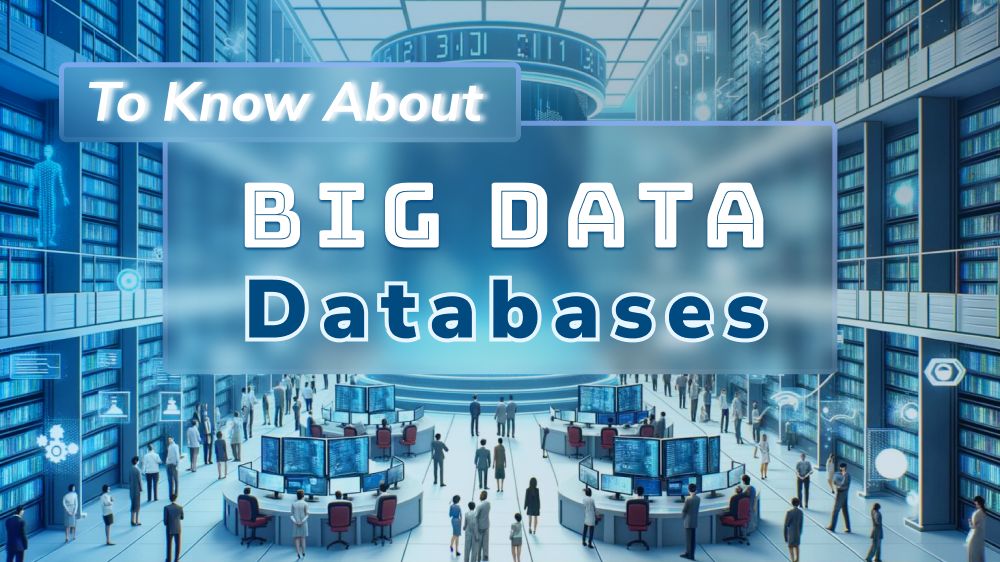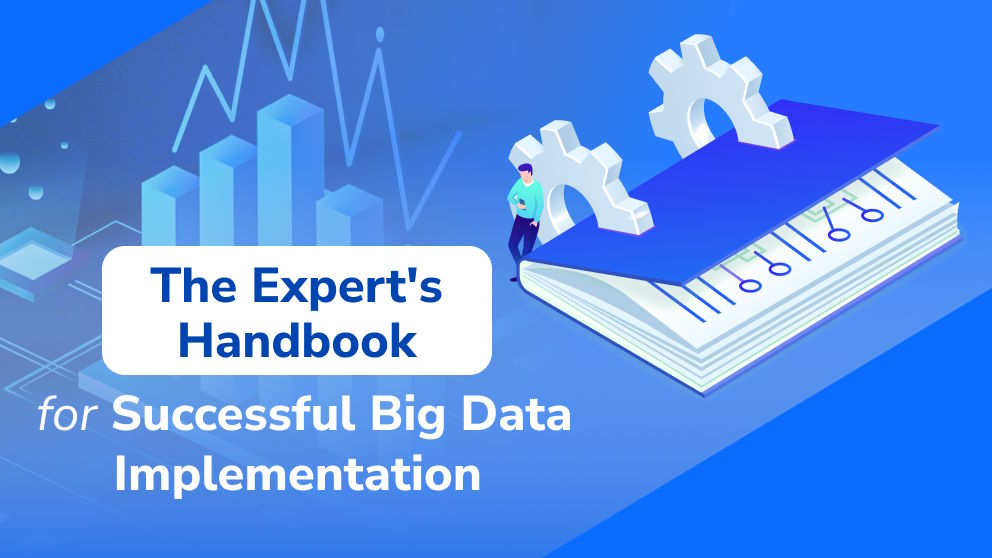Factors That Should Be Considered for Big Data in eCommerce

Content Map
More chaptersIn the vast and ever-expanding world of eCommerce, data is the new currency. Every click, purchase, and interaction generates a wealth of valuable information that savvy businesses are harnessing to gain a competitive edge. eCommerce businesses can use big data analysis to tap into the wealth of customer data to enhance marketing strategies, optimize pricing models, and improve customer experience. According to a report by McKinsey, big data analytics can increase the net margin of eCommerce businesses by 60%.
In this dynamic landscape, understanding how to effectively utilize big data is a key strategy to capitalize on development opportunities and maintain a competitive edge. From personalized recommendations to predictive analytics, the possibilities are endless.
However, big data is not a magic bullet that can solve all the challenges and opportunities of eCommerce. Big data also comes with its own set of complexities and considerations that need to be addressed by eCommerce businesses. In this comprehensive guide, we will discuss factors that should be considered for big data in eCommerce. These factors are essential for ensuring that big data is used effectively and efficiently to achieve the desired outcomes and benefits for each eCommerce business.
How Is Big Data Relevant to eCommerce?
Big data refers to the large and complex sets of both structured and unstructured data that are generated at a high velocity, variety, and volume. In the context of eCommerce, big data encompasses all the data generated throughout the customer journey, from browsing to purchasing and beyond. This data holds immense value as it provides insights into customer behavior, preferences, and trends, enabling business owners to optimize their strategies and make data-driven decisions.
The eCommerce ecosystem generates a diverse range of data that holds valuable insights for businesses. Some of the key types of data include:
- Customer Data: This includes demographic information, browsing history, purchase history, preferences, feedback, and social media interactions. Customer data allows businesses to personalize marketing campaigns, enhance customer satisfaction, and build long-term relationships.
- Transaction Data: Transaction data encompasses information about individual purchases, including product details, pricing, payment methods, shipping information, and order fulfillment. Analyzing transaction data helps businesses optimize pricing strategies, inventory management, and supply chain operations.
- Website Analytics: This data provides information on website traffic, user engagement, click-through rates, conversion rates, and other metrics related to website performance. Website analytics data helps businesses understand user behavior and identify areas for improvement, thus optimizing the overall online shopping experience.
Why Big Data Matters in eCommerce

Strategic Decision Making: Imagine having a crystal ball that predicts market trends, customer preferences, and inventory demands. Big data provides just that—empowering e-commerce executives to make informed choices that steer their ship toward profitability.
- Operational Process Control: From supply chain logistics to inventory management, big data optimizes operational efficiency. It’s like having a GPS for your business processes, ensuring smoother sails and fewer bottlenecks.
- Understanding Customers: In the age of hyper-personalization, knowing your customers inside out is non-negotiable. Big data unravels their behavior patterns, preferences, and pain points. Armed with this knowledge, you can tailor experiences that resonate and retain loyal shoppers.
- Cost Reductions: Every penny counts. Big data helps trim unnecessary expenses, fine-tune marketing budgets, and allocate resources wisely. It’s like finding hidden treasure in your financial spreadsheets.
3 Primarily Considered Factors for Big Data in eCommerce
In order to harness the power of big data effectively, an e-commerce business needs to consider certain critical factors. In the following, we will explore three key factors that should be considered for big data in e-commerce, providing insights and strategies to help businesses unlock the true value of their data.
Factor 1: Data Collection and Storage
In the realm of eCommerce, the ability to collect and store relevant data is vital for gaining valuable insights into customer behavior patterns, market trends, and business performance.
Strategies for Effective Data Collection
To ensure effective data collection, eCommerce companies should implement strategies that align with their objectives and target audience. This includes employing tools such as web analytics, transactional databases, and customer relationship management (CRM) systems. These tools help capture data related to customer demographics, purchasing behavior, browsing patterns, and more. Additionally, businesses can leverage technologies like cookies, tracking pixels, and user feedback mechanisms to gather valuable insights.
Furthermore, it is crucial to define key performance indicators (KPIs) and establish data collection processes that align with these metrics. By setting clear goals and identifying the data points required to measure progress, businesses can focus their efforts on collecting meaningful data that directly contributes to their success. Regularly reviewing and refining data collection strategies ensures that businesses capture the most relevant and actionable insights.
Considerations for Data Storage and Scalability
As the volume of data increases, e-commerce businesses must address the challenges of data storage and scalability. It is important to have a robust infrastructure that can handle the growing data demands. Cloud-based storage solutions offer the flexibility and scalability needed to accommodate expanding data sets. These solutions offer the advantage of cost-effectiveness, accessibility, and reliability, ensuring that data is securely stored and readily available when needed.
Moreover, data storage should be organized and structured in a way that facilitates efficient analysis and retrieval. Implementing data management systems and adopting data governance practices ensures that data is properly classified, labeled, and secured. This allows for easy retrieval and analysis, saving time and resources.
Factor 2: Data Analysis and Insights
Simply collecting vast amounts of data is not enough; businesses must transform that data into meaningful insights. With big data analytics, eCommerce businesses can uncover patterns, trends, and correlations that provide valuable insights into customer preferences, market dynamics, and business performance. These insights serve as a compass, guiding strategic decision-making and enabling businesses to stay agile and responsive to customer needs.
Techniques for Data Analysis and Processing
To effectively analyze big data, eCommerce businesses can employ various techniques and tools. One popular approach is data mining, which involves extracting patterns and knowledge from large datasets. Data mining techniques, classification, clustering, and association analysis, for instance, enable businesses to segment customers, identify purchasing patterns, and uncover hidden relationships between variables.
Another technique is machine learning, where algorithms are trained to automatically identify patterns and make predictions or recommendations. Machine learning models can help businesses optimize pricing strategies, personalize product recommendations, and detect fraud or anomalies in real time.
Furthermore, visualization techniques play a crucial role in data analysis. Data visualization tools transform complex data into intuitive charts, graphs, and dashboards, making it easier for stakeholders to understand and interpret the information. Visualization enhances decision-making, enabling businesses to identify opportunities, spot emerging trends, and communicate insights effectively.
Extracting Actionable Insights from Big Data
The true value of big data lies in the actionable insights it offers. In order to extract meaningful insights, eCommerce businesses should focus on identifying key metrics and developing relevant Key Performance Indicators (KPIs). These KPIs can vary depending on business goals, such as customer acquisition, conversion rates, or customer lifetime value. By aligning data analysis with specific KPIs, businesses can track progress, measure success, and make data-driven decisions.
Additionally, leveraging advanced analytics techniques, such as predictive analytics or sentiment analysis, can provide valuable insights into future customer behavior and market trends. By understanding what drives customer satisfaction, engagement, and loyalty, businesses can tailor their strategies and offerings to meet customer expectations effectively.
Factor 3: Data Privacy and Security
In the digital age, data privacy and security have become a major concern for both businesses and consumers. With the increasing amount of personal and sensitive information being collected in eCommerce, customers are becoming more cautious about how their data is handled. Therefore, it is crucial for eCommerce businesses to recognize and address these concerns.
Implementing Robust Security Measures for Big Data
eCommerce businesses must implement robust security measures to safeguard customer data. Such processes include employing advanced encryption techniques to protect data both during transmission and storage. Secure socket layer (SSL) encryption and secure file transfer protocol (SFTP) are examples of technologies that can ensure secure data transfer between systems.
In addition to encryption, businesses should invest in firewalls, intrusion detection systems, and regular vulnerability assessments to detect and prevent unauthorized access to their systems. By implementing multi-factor authentication, businesses can add an extra layer of security to make sure that only authorized individuals have the right to access sensitive data.
Ensuring Compliance with Data Protection Regulations
In order to maintain data privacy and security, eCommerce businesses must adhere to data protection regulations and standards. Depending on the geographical location and the nature of the business, compliance with regulations such as the General Data Protection Regulation (GDPR) and the California Consumer Privacy Act (CCPA) may be necessary.
Businesses should establish clear data-handling policies and procedures to ensure compliance. This includes obtaining proper consent for data collection, ensuring data is collected only for legitimate purposes, and providing transparent disclosures about how the data will be used. Regular audits and assessments can help evaluate compliance and identify areas for improvement.
Furthermore, businesses should educate their employees about data privacy best practices and conduct regular training sessions to raise awareness about potential risks and the importance of data protection.
Conclusion
If you’re an eCommerce business looking to leverage the power of big data but unsure of how to get started, consider Orient Software as your trusted partner. With our expertise in data analytics and eCommerce solutions, we can help you unlock the full potential of your existing data and drive meaningful results.
Our team of experienced experts understands the unique challenges and opportunities that big data presents in the eCommerce landscape. We will work closely with you to assess your specific needs, create a tailored strategy, and implement robust solutions that align with your business goals.
From data collection and storage to advanced analytics and actionable insights, Orient Software has the knowledge and capabilities to guide you through every step of the process. Our comprehensive approach ensures that your data is collected securely, analyzed effectively, and transformed into actionable intelligence that drives growth and enhances customer experiences.
Don’t let the complexities of big data hold you back. Partner with Orient Software and embark on a transformative journey where data becomes your competitive advantage. Contact us today to learn how we can help you harness the power of big data in eCommerce and propel your business to new heights.







